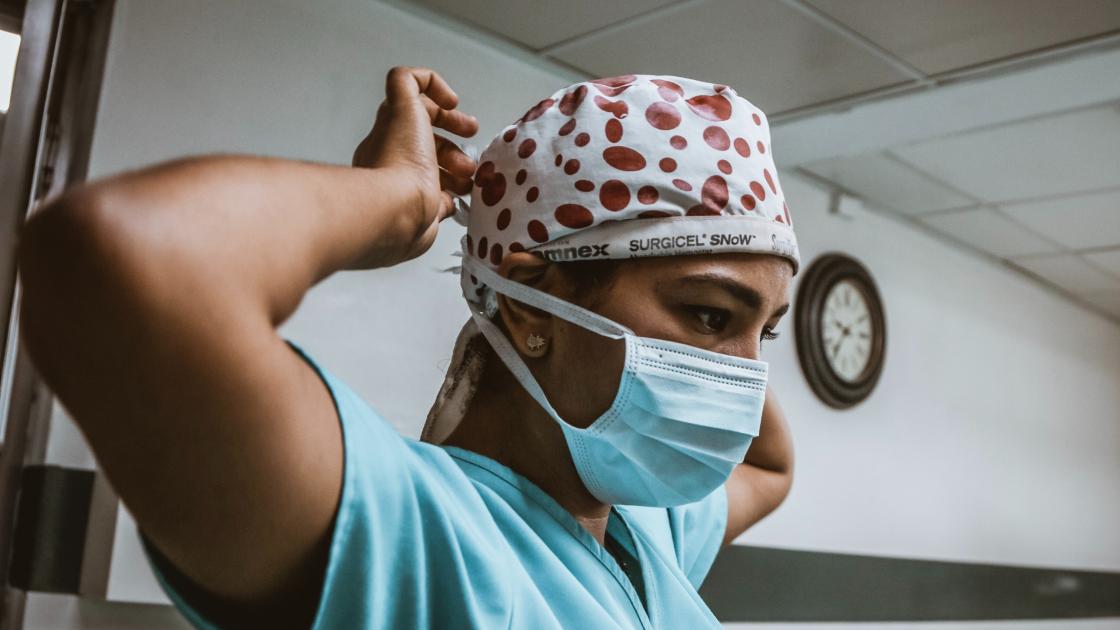
5 things trauma surgeons NEVER do
May is Trauma Awareness Month. Accidents and unintentional injuries remain the leading cause of death among people age 1 - 44. With decades of intensive training, education, research and direct clinical experience, the trauma team at SIU Medicine works tirelessly to treat and prevent injuries, keeping our communities safer.
You’ve heard the saying, “An ounce of prevention is worth a pound of cure.” We asked our trauma experts: What are some of the most common and dangerous ways people get hurt? Keep reading to learn the answers—and to find out five things these professionals would never do.
1. Never drive in unsafe conditions
Motor vehicle crashes are one of the most common causes of serious injury, disfigurement and death. Our trauma surgeons would NEVER:
- Drive a car while under the influence of drugs (including legal and certain prescription medications), marijuana or alcohol. It’s just not worth the risk. Have a designated driver, call a cab or use a ride-share app.
- Drive distracted. Research from Texas A&M University’s Texas Transportation Institute suggests that texting while driving doubles reaction time. It could take three to four seconds to avoid a roadway obstacle when driving while texting compared to just one to two seconds when driving undistracted. That’s important if the “obstacle” is a child who ran onto the road!
- Drive aggressively or speed excessively. Studies demonstrated that you only save a few seconds of most urban trips through aggressive lane changes and “beating” lights. Is a few extra seconds worth your life or months of recovery?
- Travel in a car without wearing a seat belt. According to the Centers for Disease Control and Prevention, seat belts reduce the risk of death and serious injury by about 50% for both drivers and front-seat passengers.
- Travel in a vehicle with someone who drives recklessly or who is under the influence of drugs, marijuana or alcohol.
And it’s not just road vehicles: Crashes and rollovers of all-terrain vehicles (ATVs), such as side-by-sides and four wheelers, can lead to serious injury and death to drivers and passengers if not operated safely with attention to terrain and distractions.
2. Never ride a motorcycle or bike of any type without a helmet
Many people enjoy riding motorcycles, bicycles, scooters, skateboards, rollerblades, hoverboards, electric bikes and other wheeled devices, including our trauma surgeons! Don't give up your hobby or method of transportation. Our trauma surgeons advise you to do what they do: always wear an appropriately fitting helmet and other protective equipment. The risks of traumatic brain injury and death are markedly reduced in the event of a crash. And the years of enjoyment are increased!
Watch out for other vehicles. Drivers might not always be able or expect to see you on the roadway. Be cautious of a vehicle’s “blind spot.” Obey all traffic laws. A little courtesy to car and truck drivers goes a long way.
3. Never dive into water of unknown depth
Diving or jumping into shallow water—including pools, rivers, ponds and lakes—is a leading cause of preventable paralysis and death due to neck fractures and spinal cord injuries. Never roughhouse around water and ensure everyone in your family knows how to swim.
4. Never fail to follow basic gun safety rules
Are you aware that firearm injury is now the leading cause of death for teenagers, exceeding motor vehicles? If you choose to own firearms, as some of our trauma surgeons have, disciplined adherence to gun safety and firearm access control is mandatory to reduce the chance of accidental death and injury. Ensure children and family members respect and understand these rules, as well. Knowing how to properly use, clean and store firearms and ammunition is literally an everyday life-or-death action of a responsible owner.
5. Never neglect workplace safety standards
For individuals working in certain industries—including farming and agriculture, trucking, construction and manufacturing—implementing strict safety protocols can be costly in terms of time and resources. But inspecting and replacing faulty equipment, providing appropriate personal protective equipment (PPE), establishing standard work practices and other methods are key to reducing the prevalence of workplace injury and death. Always protect yourself and your workforce.
SIU Medicine: leading the region in trauma and critical care
As the first Level 1 trauma center in the region, the Southern Illinois Trauma Center at SIU Medicine is home to a team of highly trained, qualified and experienced surgeons who are national leaders in trauma and critical care. Learn more about our surgical and critical care services or find a doctor today who can help you with your health concerns.




